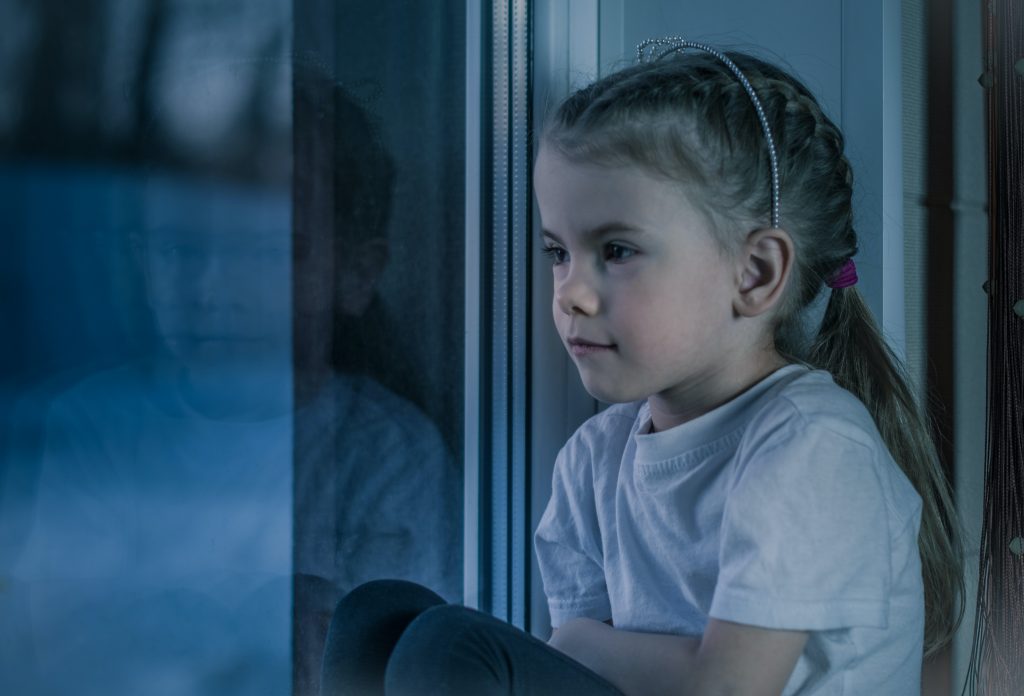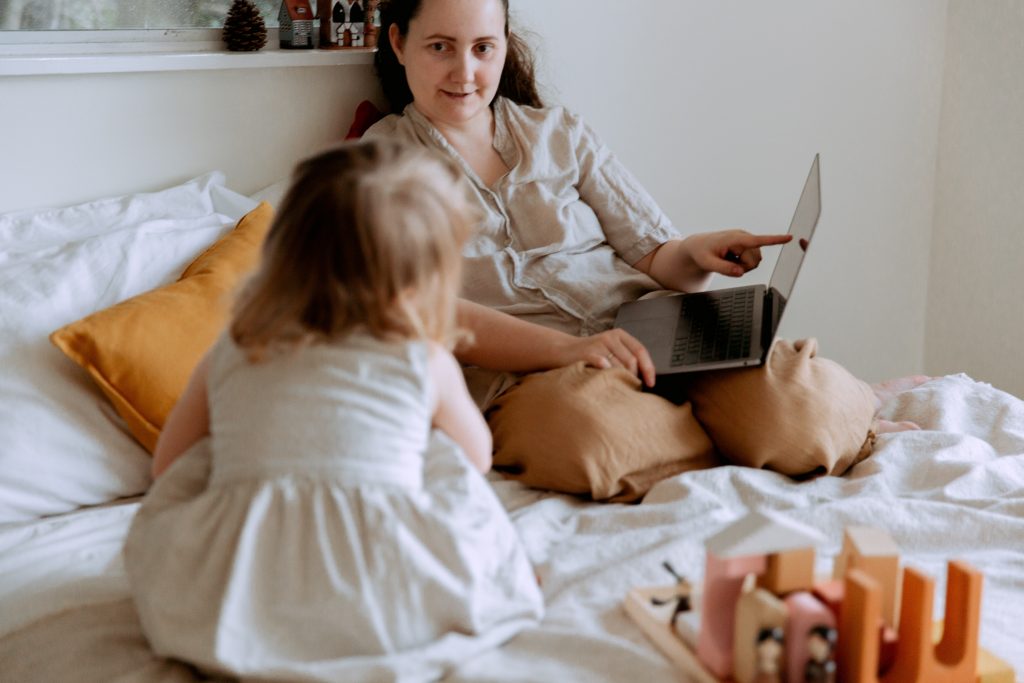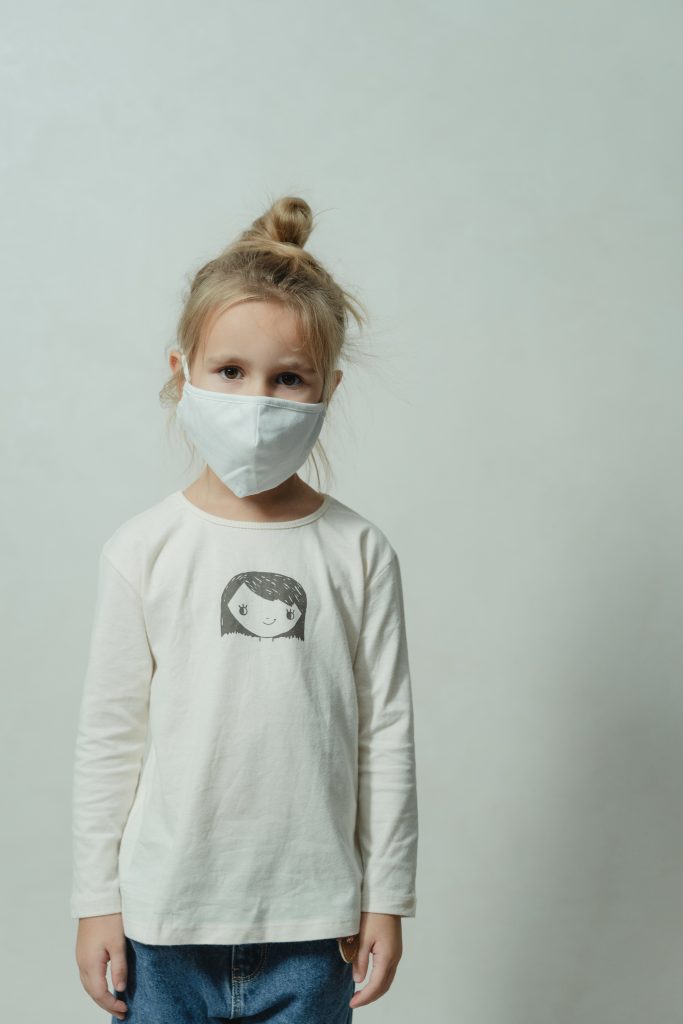By Ayah Alhabbal
The Influenza also known as the Spanish Flu was a pandemic that happened in 1918 and lasted until 1920. It killed over 50 million people. The protocols of the Influenza pandemic are very similar to today’s pandemic, Coronavirus. The Influenza and Coronavirus have similar symptoms. Both pandemics also have same safety measures like, wearing a mask, practicing social distancing, quarantining, and avoiding school or work when possible. With how similar both the Influenza and Coronavirus are it made me wonder, how are children’s mental health during pandemics? And, how can we improve it?
Stress and its Effect On Children’s Mental Health
When children are put in stressful situations (like a pandemic) it can affect their brain in the long term. A study written by NCBI explains that, “In addition to the stress caused by the pandemic, the parent-child relationship and the relationship between parents also affect the mental health of parents in such a difficult period, and parents’ mental health can further affect children’s mental and physical health, creating a vicious circle.”[1] With parents stressing over things like losing income, loved ones, or even teaching their kids from home this reflects onto the child. The CDC research shows, “the proportion of mental health-related ED visits increased sharply beginning in mid-March 2020 (week 12) and continued into October (week 42) with increases of 24% among children aged 5–11 years and 31% among adolescents aged 12–17 years, compared with the same period in 2019.”[2] Children are sensitive to their environment and can pick up on the emotions around them, with them being stuck at home and surrounded by their parents stress it is hard for them to not let these negative emotions affect them.
The Importance of Children Having Strong Social Skills
Having a child practice and strengthen their social skills is a must if they are wanting a successful future, according to a study written by NCIB “research study shows us that young children with more developed social competence skills are more likely to live healthier, successful lives as adults—through the education and jobs they attain and their overall quality of life.”[3] School is the environment where most children will practice their social skills. They are surrounded by their peers who can relate to them. According to a study written by International Encyclopedia of the Social & Behavioral Sciences, “the school is a social institution directly involved in socializing children, although its mandate is more narrowly defined as providing formal education and developing children’s knowledge and skills. In this sense, schools are less involved in primary socialization (i.e., the development of basic values, motivations, and conceptions of self) and more involved in secondary socialization (i.e., the development of knowledge and skills).”[4] Coronavirus has shut down most schools and has had students switch to online learning. This takes away the ability for children to interact with their peers and strengthen their social skills.
Isolation and its Effect On Children

With social distancing in play, children can’t socialize with their friends and they start to feel isolated. The Mayo Clinic explains, “Research shows that loneliness in kids, especially over extended periods, is linked with mental health conditions such as depression and anxiety in the following years.”[5] They then start to rely on technology to entrain them. This can be very dangerous and children can not only get addicted but also have their mental health affected. As reported by ScienecDirect “Without the right balance, excessive screen time might result in the aforementioned psychopathological states.”[6] Children will start to forget their social skills and have a hard time in the future.
How We Can Learn From The Influenza
Children in the 1918 Influenza pandemic went through the same emotions as children are right now in the Coronavirus pandemic. According to Psychiatric Time, “In November 1918, 31,000 children in New York City alone had lost one or both parents. For others, the experience left them feeling a mix of guilt, anger, confusion, and abandonment.”[7] Many children from the Influenza pandemic grew up to have a mental illness. An article written on The Guardian by Ros Coward tells the story of his grandmother and father experience in Influenza pandemic. According to his article their experience has left some emotional scarring on the both of them. “Many experts are warning that this pandemic will leave a legacy of mental health issues… Another question was about my grandmother’s daughter, Constance, my father’s baby sister. My grandmother had told me sadly how she’d died of the Spanish flu, but I didn’t know at what age. All I knew was what my father told me. He’d been playing with his toys outside her room when the doctor had emerged to tell them she’d died. He said he’d felt terrible guilt that he’d been lost in his game and hadn’t thought of her. I’d always wondered whether this had been a factor in his own melancholy, his persistent guilt about things he hadn’t done and his generalized anxiety. The ancestry research confirmed she died aged three, when my father was eight, a loss that would have been traumatic for a young boy.”[8] In the article Ros also talks about how this experience has also affected him. “My father’s experience of his sister’s death left him chronically anxious, fearful of where the next disaster would strike, and this was particularly acute around his children. I wish I could say I shrugged it off. But the truth is I picked up a lot of his anxiety, as any child does with an anxious parent.” This small glimpse into a family’s life in the Influenza pandemic shows how a pandemic can have serious impacts on not only their own mental health but, their future’s generation too. By understanding the Influenza and how it mentally affected children we can learn how to improve children’s mental health.
How We Can Improve Children’s Mental Health During The Coronavirus Pandemic

The Influenza pandemic and its affect on children’s mental health is proof of what will happen in the future if we don’t focus on helping children’s mental health during the Coronavirus pandemic. The Mental Health Department has tips that can improve your child’s mental health during Coronavirus. “It is important to make time to talk with children when they are worried… It is important to know what your child has seen or heard about COVID-19 so that you can discuss any worries or misinformation… If your child asks about something that you do not know, rely upon the CDC’s information to answer the question in an age-appropriate way. Be honest, but reassuring… Tell your children that most kids with COVID-19 do not get very sick, but we can help those who could get very sick… Explain that we can all help by washing our hands frequently and staying home right now to help stop the virus from spreading.”[9] By talking with your child you can reassure them mentally and help them cope with the Coronavirus pandemic. There are also many other resources and tips to help your child cope through this difficult time. Their are many activities your child can do from home that will improve their mental health. There are zoom classes children can participate in that involve fun activities like yoga and interacting with children their own age. Mental health of the growing mind is important and should be focused on. If not it could be detrimental to a child’s future.
Work Cited
Quotes:
Coward, Ros. “My Family’s History Reveals the Terrible Toll That a Pandemic Takes on Mental Health | Ros Coward.” The Guardian, Guardian News and Media, 24 May 2020, www.theguardian.com/commentisfree/2020/may/24/my-familys-history-reveals-the-terrible-toll-a-pandemic-takes-on-mental-health.
Eghigian, Greg. “The Spanish Flu Pandemic and Mental Health: A Historical Perspective.” Psychiatric Times, 28 May 2020, www.psychiatrictimes.com/view/spanish-flu-pandemic-and-mental-health-historical-perspective.
Gecas, V. “Child Socialization.” Child Socialization – an Overview | ScienceDirect Topics, 2001, www.sciencedirect.com/topics/computer-science/child-socialization.
Leeb , Rebecca T., et al. “Mental Health–Related Emergency Department Visits Among Children Aged 18 Years During the COVID-19 Pandemic – United States, January 1–October 17, 2020.” Centers for Disease Control and Prevention, Centers for Disease Control and Prevention, 12 Nov. 2020, www.cdc.gov/mmwr/volumes/69/wr/mm6945a3.htm?s_cid=mm6945a3_w.
Montag, Christian, and Jon D. Elhai. “Discussing Digital Technology Overuse in Children and Adolescents during the COVID-19 Pandemic and beyond: On the Importance of Considering Affective Neuroscience Theory.” Addictive Behaviors Reports, Elsevier, 9 Nov. 2020, www.sciencedirect.com/science/article/pii/S2352853220301280.
Robert Wood Johnson Foundation. “How Children’s Social Skills Impact Success in Adulthood .” Robert Wood Johnson Foundation, July 2015, files.eric.ed.gov/fulltext/ED592871.pdf.
Tips and Resources for Children and Parents During COVID-19, www.health.state.mn.us/communities/mentalhealth/children.
Wu, Mengting, et al. Tips and Resources for Children and Parents During COVID-19, 21 July 2020, www.health.state.mn.us/communities/mentalhealth/children.
Images:
Miroshnichenko, Tima. “Girl in White Long Sleeve Shirt Wearing White Face Mask.” Pexels, 21 Nov. 2020, www.pexels.com/photo/girl-in-white-long-sleeve-shirt-wearing-white-face-mask-5951644/ .
Studio, Bermix. “Little Girl Sits on the Windowsill and Looks out the Window.” Unspalsh, 21 June 2020, unsplash.com/photos/gF0J_hdazRA.
Syrikova, Tatiana. “Mother Talking with Small Daughter in Bedroom.” Pexels, 21 Mar. 2020, www.pexels.com/photo/mother-talking-with-small-daughter-in-bedroom-3975661/.


I really enjoy this article because I think it is very important to have knowledge on the mental health of our children, especially because childhood can shape the future of the child. I like how you talked about emotions, because for all, it can be a very sensitive time, especially for children and people who are losing loved ones.
This article really helped me understand the perspective of children’s minds. At this time it can be especially challenging to be there for others when we all seeking it the most. I will definitely be looking at the tips on how to help my kids.
I think the author did a great job with how She made the connection between the previous pandemic of influenza in 1920 and the Corona Virus pandemic we’re living in today and how it’s important to learn from the past. I like the detail she went into with her research and the sources she used like the NCIB. I also thought how her focus on the mental impact of the lockdown is a vital thing to hear about because of the media’s wide coverage of the physical impact and death toll. I think that hearing big numbers and overall data can only say so much but to go into a completely different issue and one that is so prevalent in my own life let alone ever other human. I enjoyed learning about the topic based off my own situation and learning about her perspective and research on it. Great Job Ms. Alhabbal
I love how the author broke up the article into different sections. It makes it very approachable and easy to read. Each section was detailed and supported really well. I liked this article a lot as it was familiar to me. Working as a cashier this past summer I witness many kids having issues on how to act in public currently. It was very upsetting to see. Definitely more solutions need to be made to help the mental health of children during the pandemic.